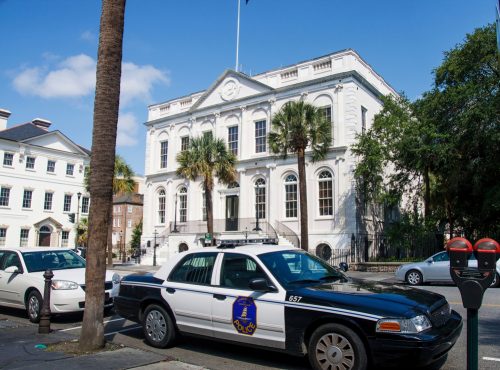The Palmetto State’s Faulty Asset Forfeiture System Continues to Roll Along
Civil Asset Forfeiture: A practice that allows law enforcement to seize property it believes was involved in the commission of a crime. The owner of the property need not be arrested or charged with a crime for his or her assets to be seized (hence civil not criminal forfeiture). Police agencies are often able to keep the property permanently or sell it for cash to fund its operations. Civil Forfeiture was originally intended as a method for fighting large criminal operations like the mob or drug lords, but has in recent years functioned in some jurisdictions as nothing more than “policing for profit.”
It’s now been over three years since The Greenville News’ TAKEN investigation revealed the injustice and corruption inherent in South Carolina’s asset forfeiture system. Immediately following the investigation, momentum was strong for legislative action, and South Carolina seemed poised to become the fourth state to abolish civil asset forfeiture. PPI highlighted a piece of legislation that would restore justice and due process to the asset forfeiture system, but that bill eventually stalled in subcommittee and died when the General Assembly left town earlier in the summer.
The judicial branch stepped into this public policy question back in October of 2019 when a state circuit judge ruled that South Carolina’s forfeiture laws violated both the state and federal constitutions. The case made it to the South Carolina Supreme Court, but as of today, no decision has been handed down. It’s been more than 18 months since the Court first heard the case and the state’s civil asset forfeiture system continues uninhibited.
Again, Civil Asset Forfeiture is a system by which police officers may confiscate items which have been or are believed to have been used in the committing of a crime. This may not be enough to immediately raise flags, but the prime issue in play is the burden of proof, as property can be seized on mere suspicion, without criminal charges ever being filed, and is not returned automatically after a “not guilty” verdict.
The individual from whom the property was taken must prove his or her innocence after the fact to retrieve their property, a notoriously complicated and perhaps deliberately difficult process. Moreover, it requires that the victim prove a negative: he or she must prove that a crime was not committed. In other words, the standard for forfeiture is “innocent” rather than “not guilty.”
And according to The Greenville News, more than 50% of police seizures in South Carolina were less than $1,000 and a third were less than $500. The Institute for Justice (IJ), a conservative legal group that studies forfeiture cases across the country, reviewed South Carolina’s asset forfeiture laws in 2019 and gave the Palmetto State a “D-” rating. In addition to a “low bar to forfeit” and a faulty burden of proof, IJ also highlighted the misplaced incentive inherent in SC’s law. Because 95% of forfeiture proceeds go to law enforcement, police have all the reason in the world to confiscate cash and personal property. IJ is joined in opposition to civil asset forfeiture as it exists in South Carolina by a number of organizations on the left. It is truly a bipartisan liberty issue.
A South Carolina Advisory Committee to the U.S. Commission on Civil Rights was created in late 2021 in order to examine SC’s asset forfeiture system, buts due to ongoing legislation, it has only released an advisory memo so far. In that memo, the committee made clear that South Carolina’s current system needed reform, and among other items, recommended that the burden of proof must be returned to the government, rather than the citizen.
While the constitutionality case still sits under appeal in the SC Supreme Court, South Carolina lawmakers have an opportunity to be proactive and right this wrong with a fresh bill when the new General Assembly convenes in January. We know the injustices that are being perpetrated and the inherent flaws in the system. It’s time to act. A possible hitch in the legislation is how to replace lost revenue to law enforcement in the wake of a shift to criminal asset forfeiture, but that can be overcome.
To read more about the ongoing legal battle, The Center Square recently published a breakdown of the most recent developments. To get a more in-depth look at the Institute for Justice’s D- rating, click here.
Update: Palmetto Promise Institute has just learned that in the last few days the Fourth Circuit Court of Appeals, the Appeals Circuit in which South Carolina resides, has just ruled in a North Carolina case that government cannot assume that a person holding a large amount of cash is engaged in drug trafficking.
Institute for Justice (IJ) finds the North Carolina litigation similar to a New York case in which an entrepreneur had the $8,040 in cash she was saving to open a food truck seized without a day in court.
The South Carolina Supreme Court has also ruled, with a majority finding that only the General Assembly can change civil asset forfeiture laws, not the high court.






